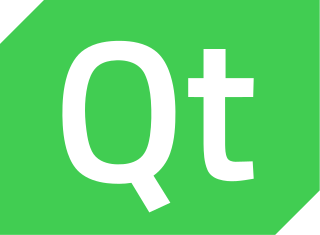Functionality
PostBooks is divided into 7 functional modules: Accounting, Sales, CRM, Manufacture, Purchase, Inventory and Products. It supports multi-currency and multi-language capability and is therefore suited for international deployment. All modules are integrated into a single common code base in the client, and reside in a single database schema on the server. The difference between PostBooks and commercial editions is completely managed in the database schema where the Commercial database includes additional tables and functions to support larger enterprises.
The PostBooks project includes two application interface options: a locally installed Graphical User Interface (GUI) client and a REST based web services API for integration with third-party applications, all of which feed into the same PostgreSQL back end database. The GUI client is using a client–server methodology written in C++ using the Qt framework. Both the Qt client and PostgreSQL database server may be run on Windows, Macintosh, or Linux operating systems. The GUI client also uses the OpenRPT report writer and renderer as its embedded reporting engine. OpenRPT is an LGPL licensed open source project also administered by xTuple and hosted on GitHub. The web client is written entirely in JavaScript using Enyo to manage the presentation layer and Backbone for the model layer. It communicates with a NodeJS server which provides the REST web services interface. The web client uses Pentaho to provide reporting and business intelligence functions.
Before going proprietary, PostBooks had a mature and established community. While the project was technically maintained on GitHub, most community activity is initiated at the xTuple hosted community website where additional forums and technical documents are available.
PostBooks is written using English as the base language but has been or is being translated into several languages by the community at large including Spanish, French, German, Russian, Turkish, Chinese and Portuguese.

PostgreSQL, also known as Postgres, is a free and open-source relational database management system (RDBMS) emphasizing extensibility and SQL compliance. It was originally named POSTGRES, referring to its origins as a successor to the Ingres database developed at the University of California, Berkeley. In 1996, the project was renamed to PostgreSQL to reflect its support for SQL. After a review in 2007, the development team decided to keep the name PostgreSQL and the alias Postgres.

Qt is a widget toolkit for creating graphical user interfaces as well as cross-platform applications that run on various software and hardware platforms such as Linux, Windows, macOS, Android or embedded systems with little or no change in the underlying codebase while still being a native application with native capabilities and speed.

PyQt is a Python binding of the cross-platform GUI toolkit Qt, implemented as a Python plug-in. PyQt is free software developed by the British firm Riverbank Computing. It is available under similar terms to Qt versions older than 4.5; this means a variety of licenses including GNU General Public License (GPL) and commercial license, but not the GNU Lesser General Public License (LGPL). PyQt supports Microsoft Windows as well as various flavours of UNIX, including Linux and MacOS.
The following tables compare general and technical information for a number of relational database management systems. Please see the individual products' articles for further information. Unless otherwise specified in footnotes, comparisons are based on the stable versions without any add-ons, extensions or external programs.
Music Player Daemon (MPD) is a free and open music player server. It plays audio files, organizes playlists and maintains a music database. In order to interact with it, a client program is needed. The MPD distribution includes mpc, a simple command line client.

Uniface is a low-code development and deployment platform for enterprise applications that can run in a large range of runtime environments, including mobile, mainframe, web, Service-oriented architecture (SOA), Windows, Java EE and .NET. Uniface is used to create mission-critical applications.

QGIS is a free and open-source cross-platform desktop geographic information system (GIS) application that supports viewing, editing, and analysis of geospatial data.
OpenMFG is an open source based, fully integrated accounting, ERP, and CRM enterprise software solution, from xTuple.
SQLyog is a GUI tool for the RDBMS MySQL. It is developed by Webyog, Inc., based in Bangalore, India, and Santa Clara, California. SQLyog is being used by more than 30,000 customers worldwide and has been downloaded more than 2,000,000 times.

LedgerSMB is a free software double entry accounting and Enterprise Resource Planning (ERP) system. Accounting data is stored in a SQL database server and a standard web browser can be used as its user interface. The system uses the Perl programming language and a Perl database interface module for processing, and PostgreSQL for data storage. LedgerSMB is a client-server application, with server access through a web browser.
EGroupware is free open-source groupware software intended for businesses from small to enterprises. Its primary functions allow users to manage contacts, appointments, projects and to-do lists. The projects spreads its software under the terms of GNU General Public License (GPL).
xTuple is an enterprise software company that develops and markets software under the brand name xTuple ERP.

Tryton is a three-tier high-level general purpose computer application platform on top of which is built an Enterprise resource planning (ERP) business solution through a set of Tryton modules. The three-tier architecture consists of the Tryton client, the Tryton server and the Database management system.
Plastic SCM is a cross-platform commercial distributed version control tool developed by Códice Software Inc. It is available for Microsoft Windows, Mac OS X, Linux, and other operating systems. It includes a command-line tool, native GUIs, diff and merge tool and integration with a number of IDEs. It is a full version control stack not based on Git.
Actian Zen is an ACID-compliant database management system (DBMS) developed by Pervasive Software. It is optimized for embedding in applications and used in several different types of packaged software applications offered by independent software vendors (ISVs) and original equipment manufacturers (OEMs). It is available for software as a service (SaaS) deployment due to a file-based architecture enabling partitioning of data for multitenancy needs.
Helix ALM, formerly called TestTrack, is application lifecycle management (ALM) software developed by Perforce. The software allows developers to manage requirements, defects, issues and testing during software development.

iDempiere. Community Powered Enterprise, also known as OSGi + ADempiere, is an open source Enterprise Resource Planning (ERP) software that is fully navigable on PCs, tablets and smartphones, it also has customer relationship management (CRM) and supply chain management (SCM) functions. It is in contrast to proprietary or most other open source ERP solutions driven only by a community of supporters.
metasfresh is an Open Source / Free Software Enterprise Resource Planning (ERP) software designed and developed for Small and medium-sized companies (SMEs).

DBeaver is a SQL client software application and a database administration tool. For relational databases it uses the JDBC application programming interface (API) to interact with databases via a JDBC driver. For other databases (NoSQL) it uses proprietary database drivers. It provides an editor that supports code completion and syntax highlighting. It provides a plug-in architecture that allows users to modify much of the application's behavior to provide database-specific functionality or features that are database-independent. This is a desktop application written in Java and based on Eclipse platform.
Jam.py primary goal is to allow development of database-driven business web applications easily and quickly, based on DRY principle, with emphasis on CRUD.








